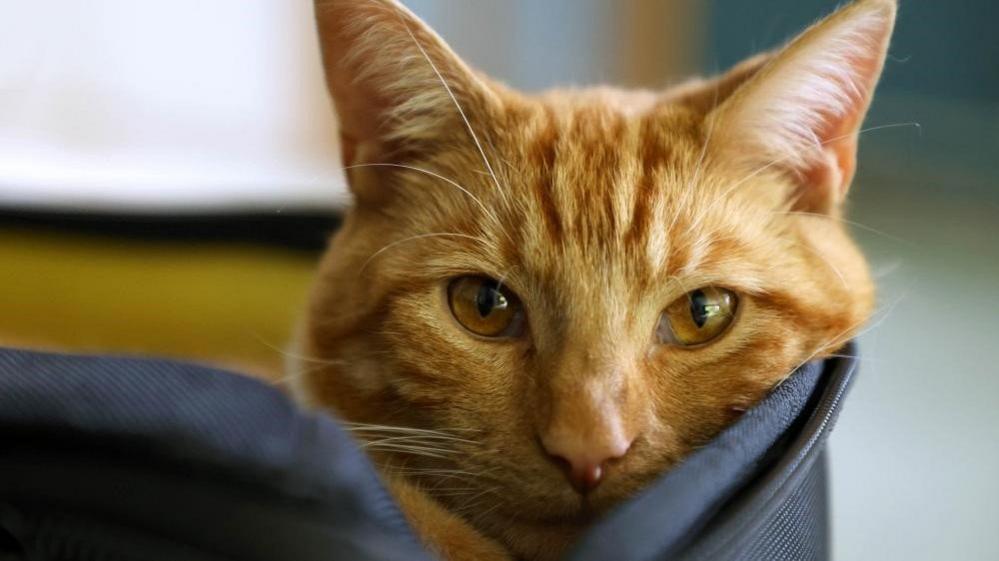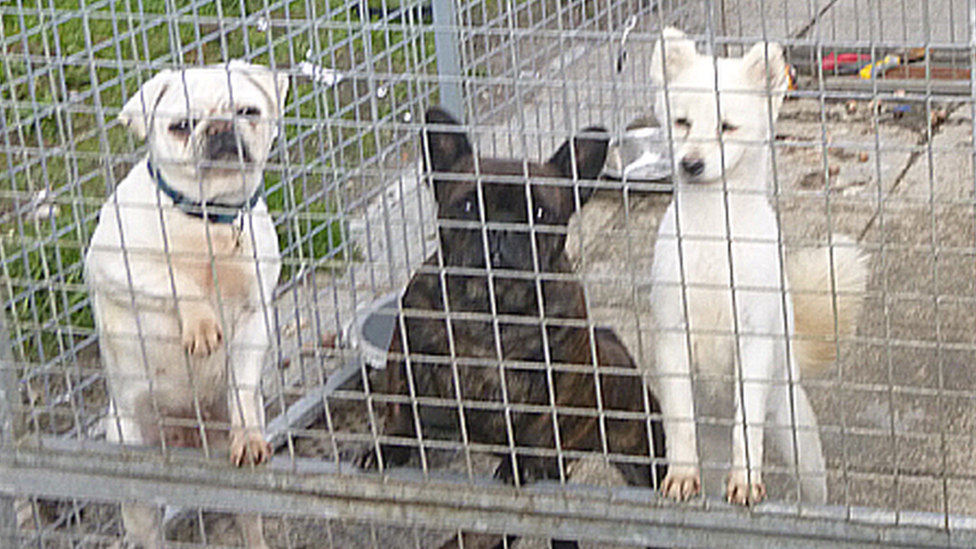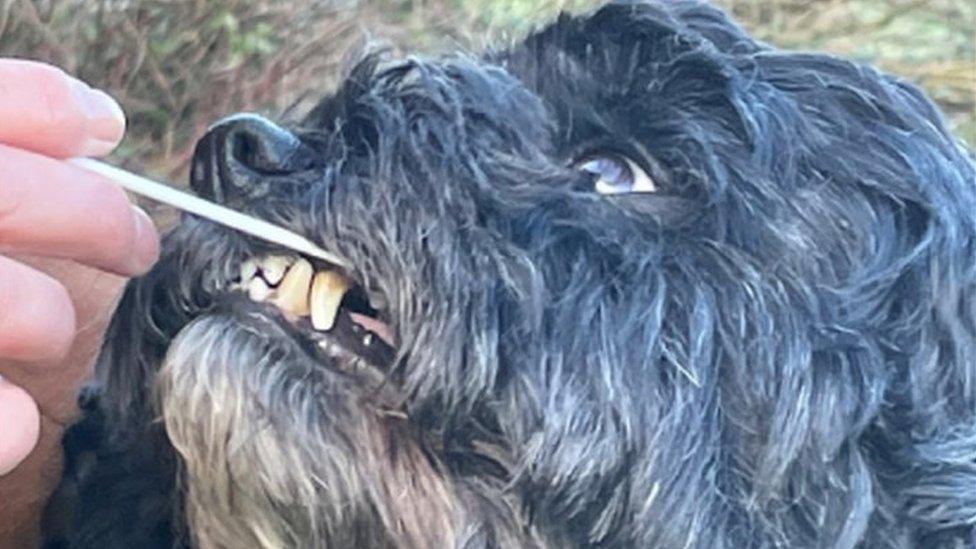Pet theft victim let down by lack of Wales abduction law
- Published

Spot has been missing since December 2018
A "devastated" owner whose dog went missing six years ago has criticised a decision not to make pet abduction a specific criminal offence in Wales.
Carwyn Powell said he felt "stranded" after Spot the collie disappeared.
The Pet Abduction Bill will not apply to Wales as animal welfare is a devolved matter.
The Welsh government said to ensure its resources have most impact in delivering its animal welfare plan, Wales will not be included in the bill.
Currently, pet theft is classed under the Theft Act, meaning that a stolen pet is treated as inanimate property under the law.
The Pet Abduction Bill, brought forward by Conservative MP Anna Firth, will make it a specific offence to abduct a pet in England and Northern Ireland.
Under the new legislation, anyone convicted of the offence could face a fine or a maximum of five years in prison.
But as animal welfare is a devolved matter, it is up to the Senedd to bring forward similar measures in Wales.

"When a dog's been stolen, there's no closure at all on it," says Carwyn Powell
Mr Powell's Collie, Spot, went missing in December 2018.
Despite an extensive search, Spot has not been seen since.
Mr Powell, 58, from Llanwrda, Carmarthenshire, said losing Spot was devastating.
"It's like losing a member of the family," he said.
"When we are doing something at home, you know there's somebody missing. When a dog's been stolen, there's no closure at all on it. You don't know what's happened to her."
Mr Powell said that the law as it stands was not strong enough to tackle pet thefts.
"Something needs to be done about it because people are left just stranded really. There's no assistance coming from anywhere but in England and [Northern] Ireland now, they will have a bit of assistance if this bill goes through Parliament, but in Wales, there's nothing forthcoming."
A pet theft taskforce was set up following a rise in pet thefts during the pandemic, and an abduction bill was one of its recommendations.
Former Welsh Secretary and MP for South Swindon, Sir Robert Buckland, who was a member of that taskforce, said: "The trouble with the Theft Act is that it deals with property and a lot of people think of pets as more than just property.
"We want families to enjoy the protection of the law and that's why abduction is a much better way of looking at it than treating animals as mere property."
Sir Robert called on the Welsh government to enact a similar change, and said pet owners in Wales "should not be put in a different position" to those in other parts of the UK.

Debbie Matthews co-founded the Stolen and Missing Pets Alliance in 2014
Debbie Matthews, co-founder of the Stolen and Missing Pets Alliance, which began calling for reforms to the law a decade ago, said: "It must be terribly worrying for the people in Wales.
"I know Scotland are putting through a dog theft law, if Wales aren't, does that mean that Wales is going to become the hotspot for taking dogs and cats?"
RSPCA Cymru is concerned that pets in Wales could be targeted more in other parts of the UK.
Billie-Jade Thomas of RSPCA Cymru said: "We hope that the Welsh government will continue to monitor the situation and that the decision that they have made is the result of an evidence-based approach."

Billie-Jade Thomas says RSPCA Cymru are disappointed that the bill will not apply in Wales
What precautions can you take to safeguard your pet?
RSPCA Cymru recommends the following measures for owners to safeguard their pets:
Avoid keeping dogs tied up outside shops
Keep an eye on your pets while they are in the garden
Ensure any gates are locked and fences are sufficient when your pet is outside
Microchip your pet
A Welsh government spokesperson said: "We want all animals to have a good quality life. We are delivering this through our programme of ambitious reforms set out in our animal welfare plan.
"Our focus is on areas which will bring greatest benefit to animal welfare across Wales, including our current consultation on licensing animal welfare establishments, exhibits and activities.
"To ensure our resources have the maximum impact on animal welfare, Wales won't be included in the scope of the Pet Abductions Bill".
More on Politics Wales on BBC One Wales, Sunday, 10:00 GMT, and on iPlayer
- Published19 January 2024

- Published22 February 2024

- Published30 January 2023
